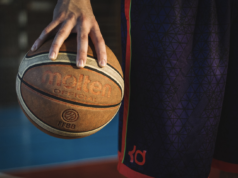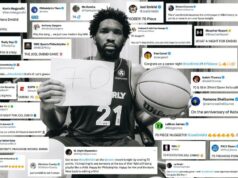A quick glance at the individual statistics of the Spurs wouldn’t seem to reveal much more than the usual break downs of things like scoring, rebounding, and shooting percentages. Look closer, and you see something that’s not quite the same.
Better yet, check the silver and black hitting hardwood and the difference almost seems drastic if you reference the mental history book. Cross reference the two and you come an unusual, albeit not necessarily bad, conclusion. The Spurs are a different team than they have been for the past several seasons.
Flip back to the stat book and notice the descending order of the scoring numbers. 20.1, 19.1, 18.6. That part seems normal. But now check the names next to the numbers.
Parker
Ginobili
Duncan
What?
But the digits alone don’t tell the story. They’re the synopsis, not the plot itself. Watch the Spurs play and you can tell the difference if your memory serves correct. The Spurs don’t play like they used to. Don’t worry if you think I’m crazy. You may not have even noticed it if you aren’t particularly observant. It’s been a subtle trip.
Somewhere after the Spurs became Duncan’s team, they started to not be his team, not really. There was of course that two, maybe three, year period when Parker and Ginobili were merely developing prospects, entirely reliant on Duncan to get their opportunities. But not long afterwards, things began to change. Parker started to develop a jump shot, and make better decisions on the floor. Ginobili started to level out, and becoming less of a liability and finally learning to harness all that energy.
In the 2005-2006 season, when Duncan played most of the season injured, it finally became evident – the Spurs can win without Duncan as the focal point. At first it was a hard realization, but of course in reality it’s a good thing. What it meant was that what so many Spurs fans feared, would never come to pass. So long as Tony Parker and Manu Ginobili are in place, no one has to worry about the day when Duncan really starts to slow down (which I assure you, hasn’t gotten here just yet).
In fact, because of Parker and Ginobili, Duncan’s career will likely be extended by a few years. Again, using that ’05-’06 season as an example, on another team Duncan would have been asked to do more than he was physically capable of, and ended up further injuring himself. As it was, his supporting cast was able to shoulder some of the load, leaving Duncan at least somewhat rested enough to dominate in the playoffs, which he did, despite injury. That was made possible because of the decreased work load he had to deal with in the regular season.
Let’s face it, Tony Parker has taken more shots than anyone else on the team by about forty attempts. Ginobili has been to the line more than any other Spur. Both of them get more freedom than they ever could have had in the past. If Parker decided he wants to pull up for a jump shot off a pick and roll instead of posting up Tim, he no longer gets yelled at for that, it’s his perogative. Ginobili wants to push the fast break one-on-two? He can do that, he’s no longer required to slow it up and wait for the offense.
Of course, there are multiple benefits to this way of playing. I’ve already went over the benefits for Duncan, but this is also good for everyone else. First of all, no one on the Spurs currently averages over 35 minutes per game. On a team that is poised for a deep post season run, this can only be considered a good thing. Parker and Ginobili are both allowed full freedom to express their talents, but they’re never asked to handle too much either.
Furthermore, role players and shooters like Michael Finley, Matt Bonner, and Brent Barry get their fair share of shot on a team that has three primary sources of offense. The ball is never continually funneled in one direction, so the ball continues to get spread all over the floor, eventually letting everyone have their shot.
No, the Spurs don’t play like they used to even just a few seasons ago, but that’s not a bad thing. Most importantly, through all the changes, one thing has remained constant: the Spurs continue to win and be one of the top teams in the league.
Change is good.





